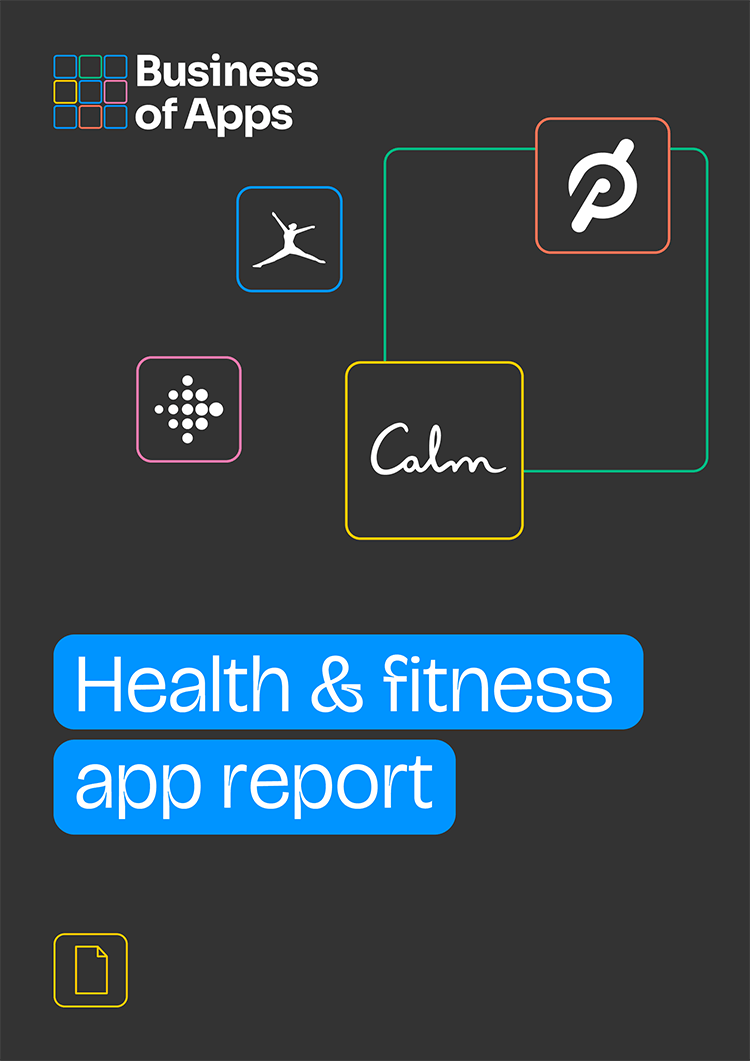Key Health & Fitness App Benchmarks
Health & Fitness App Retention Rate
Health & Fitness App Conversion Rate
Health & Fitness App Install Rate
Health & Fitness App Activation Rate
Health & Fitness App Sub Retention
Health & Fitness App Renewal Rate
Health & Fitness App Daily Usage
The health and fitness app industry covers three main pillars: health, fitness and wellness. All three are connected to maintaining a healthy lifestyle, and apps tend to pick and choose a few things to track from each.
This was one of the industries that had both positive and negative effects from the pandemic. Home workouts shot up in usage, while all gyms were closed for a time. Wellness apps also noticed an uptick in users.
Since the pandemic, the health and fitness app industry has lost some of its dazzle, with some moving back to regular gym and offline exercise. But some of the habits developed during the pandemic have stuck, with more users tracking calories, gym workouts and mental wellbeing through apps than they did pre-pandemic.
The health and fitness app industry has been focused on subscriptions for a while now, with most apps having some form of premium service. This can be in the form of more classes, expert analysis, personalized gym routines and access to professionals.
At the platform level, there is usually a hardware element involved as well. Apple, Google, Fitbit, Peloton, Oura and others all generate most of their income from hardware sales, with subscriptions taking a backseat. That said, over the past three years subscriptions have made up a higher percentage of most fitness hardware suppliers revenue.
We have collected data and statistics on health and fitness app benchmarks. Read on below to find out more. Explore further with our in-depth health & fitness app report.
Key Health & Fitness App Benchmarks
- Health and fitness apps had 3% retention rate by day 30 in 2023
- Conversion rate is higher on Google Play for health and fitness apps than iOS
- Activation rate for health and fitness apps was 26% on day one, dropping to 10% by day 28
- Annual subscriptions to health and fitness apps have a 33% retention rate
Health & Fitness App Report 2025
Want to learn more about the health & fitness app industry? In our Health & Fitness App report, we cover financials, usage, downloads, and demographics by age and gender, alongside market share, engagement, and benchmarks.


